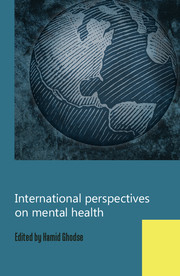Book contents
- Frontmatter
- Contents
- List of contributors
- Preface
- Africa
- Asia
- Afghanistan
- Armenia
- Azerbaijan
- Bahrain
- Bangladesh
- Brunei Darussalam
- Cambodia
- Hong Kong
- India
- Iran
- Iraq
- Israel
- Japan
- Jordan
- Kuwait
- Laos
- Lebanon
- Malaysia
- Mongolia
- Nepal
- Sultanate of Oman
- Pakistan
- The Philippines
- Qatar
- Singapore
- South Korea
- Sri Lanka
- Syrian Arab Republic
- Tajikistan
- Thailand
- Timor-Leste
- Turkey
- United Arab Emirates
- Yemen
- Australasia
- Europe
- North America
- South America
- Index
Afghanistan
from Asia
Published online by Cambridge University Press: 02 January 2018
- Frontmatter
- Contents
- List of contributors
- Preface
- Africa
- Asia
- Afghanistan
- Armenia
- Azerbaijan
- Bahrain
- Bangladesh
- Brunei Darussalam
- Cambodia
- Hong Kong
- India
- Iran
- Iraq
- Israel
- Japan
- Jordan
- Kuwait
- Laos
- Lebanon
- Malaysia
- Mongolia
- Nepal
- Sultanate of Oman
- Pakistan
- The Philippines
- Qatar
- Singapore
- South Korea
- Sri Lanka
- Syrian Arab Republic
- Tajikistan
- Thailand
- Timor-Leste
- Turkey
- United Arab Emirates
- Yemen
- Australasia
- Europe
- North America
- South America
- Index
Summary
Afghanistan's historic strategic position between the great civilisations of India, Persia and Central Asia has made it from the very beginning both a crossroads for trade and cultural exchange and an almost continuous battlefield. In the years since the Soviet invasion in 1979 the country has become the stage of an ongoing complex humanitarian emergency. The period of Soviet occupation was characterised by massive human rights violations. The Soviet army and its allies were involved in indiscriminate bombardments and targeted executions, while the mujahedeen were involved in guerrilla warfare. The USSR was forced to withdraw in 1989 and the remnants of Afghanistan's communist regime were defeated in 1992.
Rivalry among the mujahedeen groups in the early 1990s led to the destruction of large parts of the capital, Kabul, and divided the country into different regions belonging to different ethnic groups.
The rise of the fundamentalist Islamic Taliban movement was accompanied by a period of harsh rule, in which individual freedom was curtailed and the rights of women were severely restricted. In November 2001 the Taliban were ousted from power by the former mujahedeen, supported by a USled multinational coalition. The situation has stabilised since, but violence is not over yet, with continued insurgent activities targeting government officials, schools for girls, non-governmental organisations and United Nations agencies.
Effects on health
The effects of 25 years of violence in Afghanistan on the physical and human infrastructure have been enormous. The war caused an estimated 1 million deaths (Human Rights Watch, 2003). At the height of the crisis, the total number of Afghan refugees in Iran and Pakistan reached 3.7 million, amounting to 15% of the total population of Afghanistan, which is estimated at between 21 and 28 million. Afghanistan is one of the countries most severely affected by mines and other types of unexploded ordnance (International Campaign to Ban Landmines, 2001).
Decades of war and violence are reflected in Afghanistan's health statistics, which are among the poorest in the world. Life expectancy at birth is 43 years (World Bank, 2004), the mortality rate for children under 5 years of age is 257/1000 (fourth highest in the world) and the maternal mortality rate is 1900/100 000 (second highest in the world) (UNICEF, 2005).
- Type
- Chapter
- Information
- International Perspectives on Mental Health , pp. 63 - 67Publisher: Royal College of PsychiatristsPrint publication year: 2011



